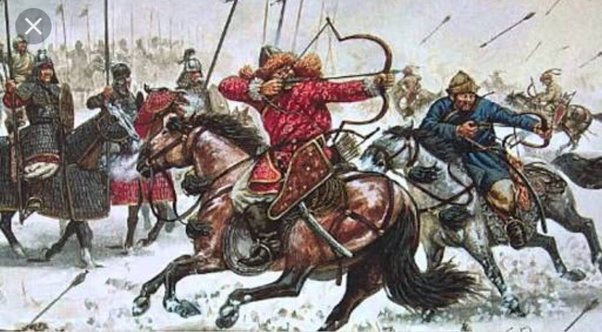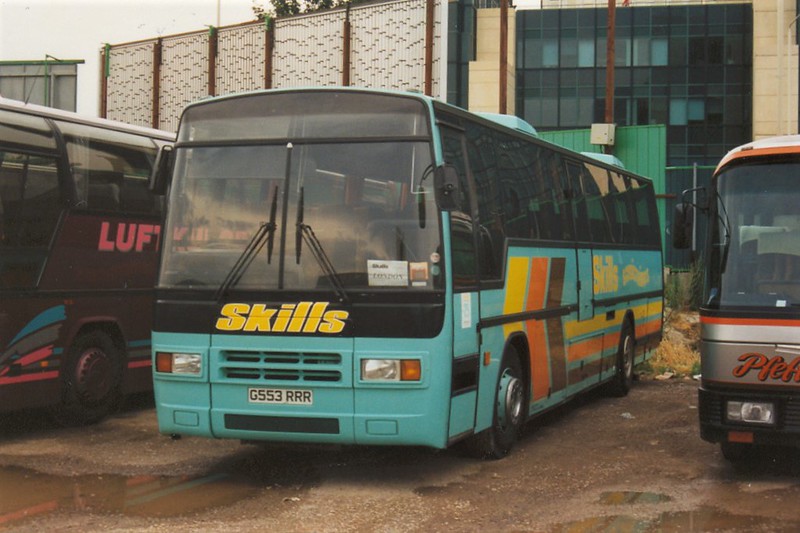
Why was Genghis Khan so successful?
Genghis Khan, the founder and leader of the Mongol Empire, was incredibly successful for various reasons. His achievements can be attributed to a combination of factors that set the Mongols apart from their adversaries. Let’s explore these factors in detail.
Meritocracy:
One of the key factors that contributed to Genghis Khan’s success was the establishment of a meritocracy within his army. Unlike many other armies at the time, where rank and privilege were often determined by family status, Genghis Khan valued skills and abilities above all else. In his army, higher ranks were earned based on individual merit and expertise in fighting and planning. This approach ensured that the Mongol commanders were not just privileged individuals, but the best tacticians. Having superior commanders who excelled in planning gave the Mongols a significant advantage over their enemies.
Psychological Warfare:
The Mongols were also known for their effective use of psychological warfare. Before attacking a city, they would often terrorize nearby villages and spread exaggerated stories of their brutality through spies. This created a fearsome reputation for the Mongols as bloodthirsty barbarians. Additionally, they employed a clever strategy of offering amnesty to those who surrendered and defected to the Mongols before besieging large cities. This tactic not only instilled fear but also allowed the Mongols to acquire advanced siege technology from captured territories and persuaded many soldiers to defect and join their ranks.
Training:
The Mongols placed great emphasis on training their troops from a young age. Mongol children began riding horses and practicing archery at an early age, developing their skills and endurance over time. The Mongol army conducted frequent training sessions, focusing on rotations, formations, and diversionary tactics. This extensive training enabled them to react swiftly and effectively to various enemy tactics and situations.
Archery:
The Mongols were renowned for their exceptional archery skills. They utilized a composite bow made of wood, horn, and sinew, which provided unparalleled range, force, and accuracy. This powerful weapon played a crucial role in many of their battle tactics. The Mongols’ extensive training allowed them to shoot arrows with precision even while riding a horse, showcasing their remarkable skill and dexterity.
Discipline:
Discipline was a fundamental aspect of the Mongol military. Every soldier, from the highest-ranking general to the lowest foot soldier, adhered to strict discipline. This ensured unity, coordination, and efficiency within the Mongol army, even in the midst of intense battles.
Breakup of Tribal Unity:
Genghis Khan sought to establish loyalty to himself rather than tribal leaders. To achieve this, he strategically assigned soldiers from different tribes to different units, effectively breaking up tribal unity. By doing so, Genghis Khan ensured that the soldiers’ loyalty was primarily to their units and, by extension, to him as their leader.
Mobility:
The Mongol warriors possessed remarkable mobility, thanks to their exceptional horsemanship skills and the endurance of their horses. They could cover long distances, riding 60 to 100 miles a day, which was an extraordinary feat during that time. The Mongol horses were small yet fast, and they could survive on minimal food, enabling the Mongols to maintain their mobility and flexibility on the battlefield.
In conclusion, Genghis Khan’s success can be attributed to a combination of factors. The establishment of a meritocracy within the Mongol army, effective psychological warfare tactics, extensive training, exceptional archery skills, discipline, the breakup of tribal unity, and remarkable mobility all played significant roles in the Mongols’ triumph. These factors allowed the Mongols to overcome their adversaries, even when heavily outnumbered, and establish one of the most expansive empires in history.
Lessons for Kenyan Leaders from Genghis Khan and the Mongol Empire
The story of Genghis Khan and the Mongol Empire offers valuable lessons for leaders in Kenya and beyond. While the historical context may differ, some fundamental principles and strategies can be applied to leadership in any setting. Here are some lessons that Kenyan leaders can learn from the Mongols:
- Embrace Meritocracy: Genghis Khan’s emphasis on meritocracy within his army is a crucial lesson for Kenyan leaders. In a meritocracy, individuals are rewarded based on their skills and abilities, rather than their social status or connections. Kenyan leaders should focus on promoting a culture where talent and hard work are recognized and rewarded, ensuring that positions of authority are filled by those who possess the necessary skills and expertise.
- Foster Unity and Loyalty: Genghis Khan understood the importance of unity and loyalty among his troops. Kenyan leaders can learn from this by promoting a sense of national unity and loyalty among citizens. By fostering a shared vision, values, and common goals, leaders can build a strong and cohesive society that works together towards progress and development.
- Harness the Power of Psychological Warfare: The Mongols were masters of psychological warfare, using fear and intimidation to their advantage. Kenyan leaders can employ similar strategies by effectively communicating their vision and instilling a sense of pride and confidence in the nation. By inspiring and motivating the population, leaders can rally support and build a strong collective identity.
- Prioritize Training and Skill Development: The Mongols placed great importance on training and skill development, particularly in areas such as horsemanship and archery. Kenyan leaders should invest in education and skill development programs to empower the population and equip them with the necessary tools to succeed. By prioritizing training and education, leaders can build a capable workforce that drives economic growth and innovation.
- Promote Discipline and Accountability: Discipline was a fundamental aspect of the Mongol army. Kenyan leaders should emphasize discipline and accountability at all levels of society, from government institutions to individuals. By fostering a culture of discipline and holding individuals accountable for their actions, leaders can ensure efficient governance, reduce corruption, and promote a sense of responsibility among citizens.
- Embrace Adaptability and Innovation: The Mongols were known for their adaptability and innovative military tactics. Kenyan leaders should encourage a culture of adaptability and innovation to navigate challenges and capitalize on opportunities. By fostering an environment that encourages creativity and problem-solving, leaders can drive progress and development in various sectors.
- Emphasize Mobility and Resilience: The Mongols’ mobility and resilience were key factors in their success. Kenyan leaders can learn from this by promoting infrastructure development and improving transportation networks. By enhancing mobility and connectivity, leaders can facilitate trade, boost economic growth, and improve access to services and opportunities for all citizens.
In conclusion, Kenyan leaders can draw valuable lessons from the leadership strategies employed by Genghis Khan and the Mongols. By embracing meritocracy, fostering unity and loyalty, harnessing the power of psychological warfare, prioritizing training and skill development, promoting discipline and accountability, embracing adaptability and innovation, and emphasizing mobility and resilience, Kenyan leaders can create a strong and prosperous nation. It is through these lessons that leaders can drive positive change and lead Kenya towards a brighter future.










